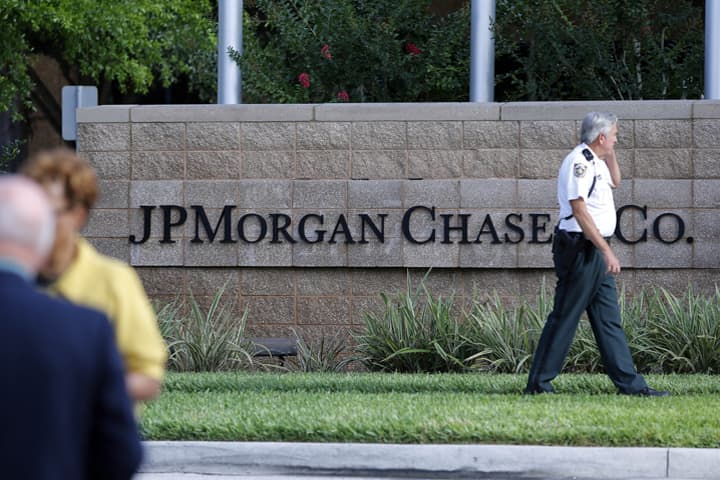Advertisement
The Quiet Clean Credit Rating Crisis
ResumeWith Guest Host Jessica Yellin.
You’re supposed to have a clean slate after bankruptcy. But that’s not always true. We’ll ask what’s going on.

After a bankruptcy your debts are supposed to be erased. But a new lawsuit accuses many credit card companies of ignoring the law, keeping those debts alive on your credit report. That means borrowers have to pay what they no longer owe, or see their credit scores plummet. If true, it’s illegal and exactly the kind of consumer abuse that was supposed to end after the financial crisis. The Department of Justice is investigating – we’re digging in. This hour, On Point: American debt, credit scores, and new allegations of consumer abuse.
-- Jessica Yellin
Guests
Jessica Silver-Greenberg, banking and consumer finance reporter for the New York Times. (@jbsgreenberg)
Charles Juntikka, personal bankruptcy attorney with Charles Junitikka & Associates, LLP. (@charlesjuntikka)
Ken Edwards, vice president of Federal Affairs at the Center for Responsible Lending. (@CRLONLINE)
From The Reading List
New York Times: Debts Canceled by Bankruptcy Still Mar Consumer Credit Scores — "The problem, state and federal officials suspect, is that some of the nation’s biggest banks ignore bankruptcy court discharges, which render the debts void. Paying no heed to the courts, the banks keep the debts alive on credit reports, essentially forcing borrowers to make payments on bills that they do not legally owe."
Bloomberg News: Consumer Credit in U.S. Climbs on Demand for Car, Student Loans -- "Consumer borrowing increased at a faster rate in September as American households took out loans for cars and education. The $15.9 billion increase in credit followed a revised $14 billion advance in August, the Federal Reserve reported today in Washington. Non-revolving loans, including borrowing for motor vehicles and college tuition, rose $14.5 billion in September."
The Wall Street Journal: U.S. Regulators Agree to Go Easier on Mortgage-Lending Rules — "The sluggishness is prompting concern in Washington as officials fret that postcrisis attempts to limit credit may have gone too far. Exacerbating those worries is the so-called private-label market for mortgage-backed securities—those without government backing—has remained tiny, despite U.S. efforts to jump-start such lending. Only $27.8 billion of such mortgage-backed securities were issued last year, less than 2% of the $1.58 trillion in mortgage securities issued that year, according to Inside Mortgage Finance."
This program aired on November 20, 2014.